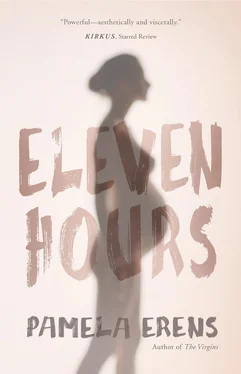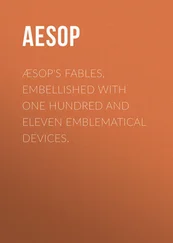Pamela Erens - Eleven Hours
Здесь есть возможность читать онлайн «Pamela Erens - Eleven Hours» весь текст электронной книги совершенно бесплатно (целиком полную версию без сокращений). В некоторых случаях можно слушать аудио, скачать через торрент в формате fb2 и присутствует краткое содержание. Год выпуска: 2016, Издательство: Tin House, Жанр: Современная проза, на английском языке. Описание произведения, (предисловие) а так же отзывы посетителей доступны на портале библиотеки ЛибКат.
- Название:Eleven Hours
- Автор:
- Издательство:Tin House
- Жанр:
- Год:2016
- ISBN:нет данных
- Рейтинг книги:4 / 5. Голосов: 1
-
Избранное:Добавить в избранное
- Отзывы:
-
Ваша оценка:
- 80
- 1
- 2
- 3
- 4
- 5
Eleven Hours: краткое содержание, описание и аннотация
Предлагаем к чтению аннотацию, описание, краткое содержание или предисловие (зависит от того, что написал сам автор книги «Eleven Hours»). Если вы не нашли необходимую информацию о книге — напишите в комментариях, мы постараемся отыскать её.
Eleven Hours
Eleven Hours — читать онлайн бесплатно полную книгу (весь текст) целиком
Ниже представлен текст книги, разбитый по страницам. Система сохранения места последней прочитанной страницы, позволяет с удобством читать онлайн бесплатно книгу «Eleven Hours», без необходимости каждый раз заново искать на чём Вы остановились. Поставьте закладку, и сможете в любой момент перейти на страницу, на которой закончили чтение.
Интервал:
Закладка:
“You seem to be taking a bit of a break,” says the doctor. “In any case, you’re at three centimeters. Fifty percent effaced, minus-two station.”
Three centimeters? Three centimeters? The pipes under the sink and Dr. Elspeth-Chang calling ahead and she is at three centimeters?
“Your water hasn’t broken yet, so it’s probably going to be a while. You might want to go home. Do you live far?”
“Yes,” says Lore. Oh, yes, she lives far. She had to go far to be able to afford no roommates, a place where she and the baby-to-be could be alone. She can’t bear the thought of going all the way back to Jackson Heights and then having to return again, not to mention the expense of two more taxi rides. “Like I said, they were coming every four minutes before I left. Maybe every three.”
The doctor pauses. “All right.” He looks at Franckline, and they exchange a glance — the girl is alone, she’s at forty weeks, it’s not busy this morning. “Let’s see what happens over the next hour or so. We’ll take good care of you,” he assures Lore. He waits for a returning smile, but she does not oblige.
“Would you like another damp cloth?” asks Franckline, when the doctor has gone out. For a cold sweat is upon Lore again. Lore nods. “Don’t pay too much attention to the numbers,” the nurse tells her. “You can spend six hours getting to three centimeters and then go from there to ten in forty-five minutes. It doesn’t mean that much.”
“Why do they check, then?”
Franckline removes the chilly cloth. “Because we all like to measure things,” she says. She’ll call Dr. Elspeth-Chang and give her the news. In the meantime, Lore should rest; she’ll be glad for it later.
But just as she says this Lore feels a contraction coming at last, starting somewhere in her back and moving layer by layer toward the deepest, most interior part of her pelvis, then seeming to radiate back out from there, pushing and spreading as if to press out of her skin. Franckline has been sitting next to the bed but now stands up. There’s no time for Lore to get into a more comfortable position. On her back, as she is now, she is trapped and helpless, unable to meet the hurt with anything of her own. Her cervix is the pit of a fruit — apricot, peach — that is being pried apart to release something new: a juice or a green shoot. Her face twists and she draws up her knees and pushes down as if she were already pushing the baby out, but this is a mistake, the pit is not ready to come open and it resists her, spraying her with pain. Lore rolls from side to side on the bed, calling out, “Oh, no! Oh, no!” She hears herself, and is ashamed of this voice, of the panic in it. But: Oh, no! Oh, no! it says, and Oh, no! again, and then, finally, she is able to tell her voice to stop, to shut up, and she merely sways, clenching her jaw as the pain gradually diminishes and seeps back out of her body. Diana, she thinks. Ma. Ma! But her mother, the last time she saw her, was a gray face on a cot in the living room, murmuring, Listen, you’ll get money from the policy I paid into, you’ll be able to move someplace else if you want, you’ll get on with your life …
“That was a good long one,” Franckline tells her. “Forty seconds.”
Lore turns her head away in self-reproach. “I didn’t … I wasn’t ready.”
“It’s all right. There are some things we can do to make the next one easier. For starters, let’s get you off your back.”
“Don’t tell me to do the breathing,” Lore warns. “I’m sick of hearing about the breathing.”
“I’m not saying anything about any breathing.”
Lore shifts to her side and lets Franckline gently help her to a seated position. It is then that Franckline notices how tightly Lore’s ring pinches her.
“Your finger,” she says, pointing her chin in the direction of Lore’s left hand.
Lore spreads it in front of her eyes — what of it?
“It’s swollen. You should have that ring off. The finger isn’t getting the proper circulation.”
Lore shrugs.
“They have a tool here that can cut it. I’ll call for someone.”
“No,” says Lore. And though she says it quietly, there is finality in it. Franckline has rarely heard such a “no” from a woman. Where did Lore learn to say hers? What makes her believe it will be honored?
Franckline reaches for Lore’s hand — Lore does not protest this action — and gazes down at the palm. There is flesh bunched below the wide silver band on the fourth finger, like a thick putty squeezing out. The ring, though substantial, is swallowed up by the large hand. It is engraved with some abstract pattern of repeating and interlocking L shapes. The finger above the ring is paler than the other fingers, with a blueish tinge. Franckline should tell Lore in no uncertain terms, in her practiced nurse’s voice, that the ring must be cut, that she could lose the finger. Franckline should use a word like necrotize , a word that makes young women pale and listen. But Lore would simply repeat “no.” Franckline can feel it up and down her nerves. Nevertheless it would be unprofessional, irresponsible, not to press the matter. Her responsibility just now is to the finger, not to Lore. That is, to Lore’s body and not to whatever thoughts cause Lore to frown and to so firmly refuse.
“Yes,” Franckline says. “You will lose the finger.”
The girl laughs. It is sudden and full of mirth. Franckline sees that the girl’s face can be pretty, under the right kind of expression. Until now it has been merely a pale, moon-shaped, not especially distinctive face. Light-brown irises and shoulder-length hair of an indeterminate brown color. A face you don’t focus on in a crowd, that your eyes slide away from on the subway. Not like Franckline’s own (why deny it?), long and sculpted with deep-set eyes and, Bernard says, the elegant neck of a movie star. The girl is laughing and Franckline can see that she has a pretty self as well, a self more delicate and tender that contradicts her heavy, doleful energy. It is a hidden self, though, wary and watching.
“I’m not going to lose a finger,” Lore says delightedly.
“You could. Yes, you could.”
“No, I won’t.”
Let the girl laugh. But it will be Franckline’s fault, in the end, if anything happens. Stiffly, she says, “We will check on it later. To make sure it doesn’t get any worse. Look, you can take the monitor off now if you like.”
“It’s coming again,” Lore says, as soon as Franckline is done removing the belt and placing it near the monitor screen. “I want to get onto my hands and knees.”
Franckline tips Lore forward as if she were a sort of rocking horse, and helps her untuck her legs from beneath her.
“Thank you,” breathes the girl. So she has manners, at least.
This time, as the contraction mounts, she does not cry out, but her face is tense and grim. In fighting back her cries of fear she is fighting her body, too, and Franckline can feel the inner muscles clenching against the descending head, rendering the long moment of suffering unproductive. She does not touch the girl; she can feel as clearly as she feels the constriction of the muscles that the girl does not want to be touched. How insistent she is, how rigid. How pointless it is to fight the body and the pain it sends, stretching and widening one to make new life, demanding that the self fall back and make space. Make space! Pointless to fight it. Yet nearly all of them do, crying, screaming, praying, begging Franckline to make it stop, to reel back the forces of being. She has known that since she was a child. She was no more than six years old; every time there was a birth in her village she would run, more than a mile if necessary, to be there. Nearly faint with excitement and anticipation: would the woman bleed a lot, develop a fever, would she scream loudly or just whimper, would she live, would the baby live? She was compelled to see what might happen. The deep groans of the squatting woman, the way her sisters and aunties and cousins would cluster around her, gripping her arms and steadying her hips, running with sweat all of them, the parched lips and the low humming songs; it was like the races the older boys and young men sometimes ran against each other, the strain of bodies pushed to their limits, the pain, the exhaustion, the glory in the finish, but better because more violent: the head crowning at the end, the blood mixed with the sparse hair, the last push and the last groan, the woman released at last, muttering, weeping, cradled by the arms of the sisters and aunties and cousins.
Читать дальшеИнтервал:
Закладка:
Похожие книги на «Eleven Hours»
Представляем Вашему вниманию похожие книги на «Eleven Hours» списком для выбора. Мы отобрали схожую по названию и смыслу литературу в надежде предоставить читателям больше вариантов отыскать новые, интересные, ещё непрочитанные произведения.
Обсуждение, отзывы о книге «Eleven Hours» и просто собственные мнения читателей. Оставьте ваши комментарии, напишите, что Вы думаете о произведении, его смысле или главных героях. Укажите что конкретно понравилось, а что нет, и почему Вы так считаете.












